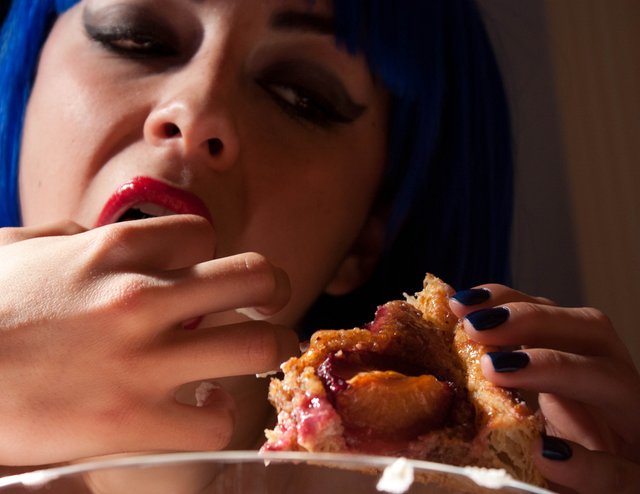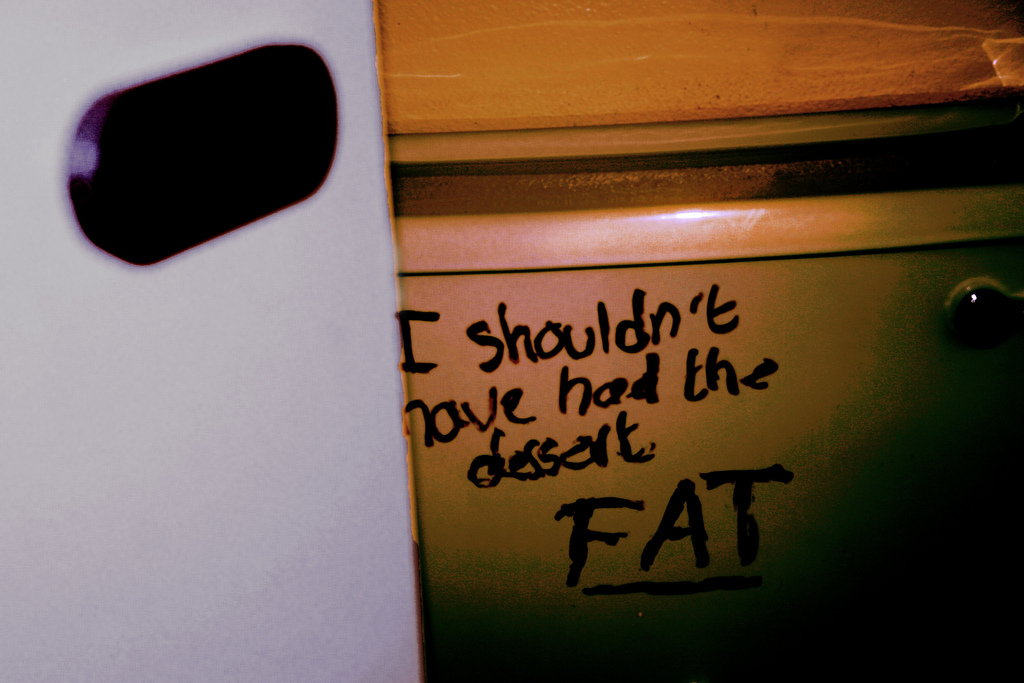WHY do some people OVEREAT? Introduction: Binge Eating Disorder (BED).
We all love food, we all sometimes over-eat, but what if it becomes addictive behavior?
As a psychologist and as a person I am very interested in (psychological) disorders of any kind. Sometimes, when I don’t know exactly how a disorder works and what it is, I’d like to do a bit research. Like binge eating disorder. So, here is a start of my sort of short paper.

Overeating has long been accepted as part of human behavior (Heatherton & Baumeister, 2008). Stunkard (1959) described in the 50s of the last century the phenomenon 'binging' for the first time. When someone is binge eating it is seen as a disordered way of eating which is a key component of various eating disorders such as anorexia nervosa (AN), binge eating disorder (BED) and bulimia nervosa (BN).
The description of a binge, according to the Diagnostic and Statistical Manual of Mental Disorders (DSM-IV) consuming much food within a limited time and which is greater than the amount of food that most people take in the same time period (Kelly, Bulik & Mazzeo; 2013). Also, the people who binge feel they have no control of eating food. In May 2013, the DSM-5 was released, and took finally binge eating up as an disorder. In the DSM-IV, the disorder is still housed in the category 'eating disorders not otherwise specified "(NOS) (Wonderlich, Gordon, Mitchel, Crosby & Engel, 2009).

People with binge eating disorder are like people with boulimia, persons with both disorders binge a lot, the difference is that people with binge eating disorder not compensate their eating behaviour like persons with boulimia nervosa by vomiting, using laxatives, do excessive exercising and fasting (Dingemans et al, 2002). After a binge, most people with binge eating disorder experience feelings of guilt, disgust and depression (DSM-IV).

Next part I will try to find out if binge eating disorder is related to depression. I think it is, but let’s find out!
Sources:
Dingemans, A.E., Bruna, M.J. & Van Furth, E.F. (2002). Binge eating disorder: a review. International Journal of Obesity, 26, 299-307.
Heatherton, T.F. & Baumeister, R.F. (1991). Binge eating as escape from self-awareness. Psychological Bulletin, 110, 86-108.
Kelly, N.R., Bulik, C.M. & Mazzeo, S.E. (2013). Executive functioning and behavioural impulsivity of young women who binge eat. International Journal of Eating Disorders. DOI: 10.1002
Stunkard, A.J. (1959). Eating patterns and obesity. Psychiatric Quarterly, 33, 284-295.
Wonderlich, S.A., Gordon, K.H., Mitchell, J.E., Crosby, R.D. & Engel, S.G. (2009). The validity and clinical utility of binge eating disorder. International Journal of Eating Disorders, 42, 687-705.
Follow me: @pinkielady
Some of my other articles you might like:
Stress: the source of all problems?
Stress: how to recognize it
Checking social media every day? You probably suffer of socialbesitas